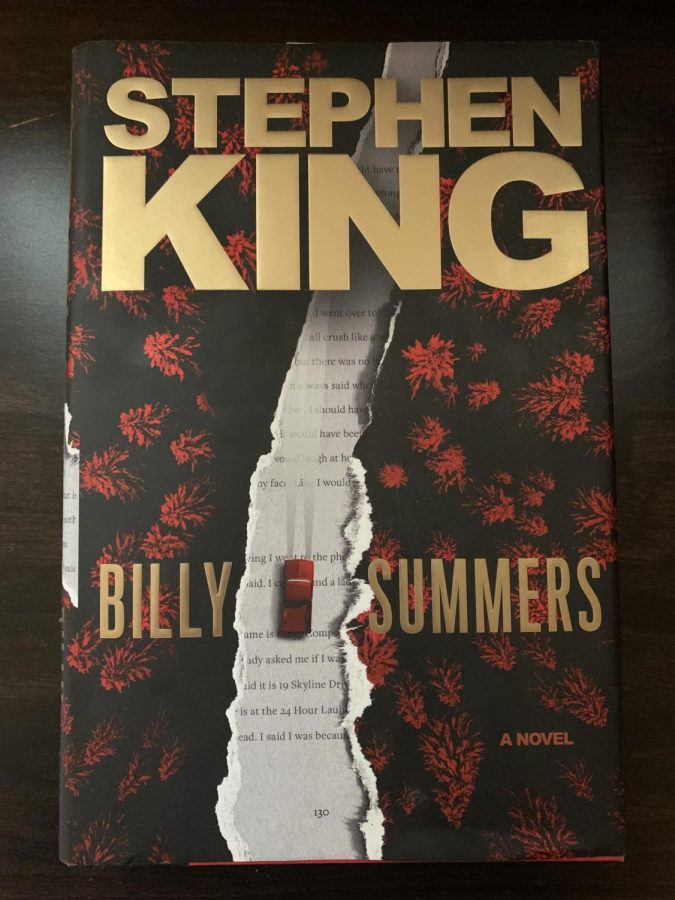“Billy Summers” provides dark, epic take on thriller genre
April 16, 2022
“Billy Summers” is one of Stephen King’s newest novels, and it is one of his better reads in recent years. He writes in a unique and interesting format, maintains suspense throughout, and provides the dark and gruesome moments his readers have come to expect.
The novel centers around the title character, a hired killer who only kills people he deems to be amoral or to have committed evil acts. The first 200 pages or so focus on Summers’ final job. The audience follows Summers around as he becomes a part of the town where the job will happen, sets up for the killing, and prepares his escape afterwards.
This section of the book could be its own thriller novel, and really, it behaves that way; most of the characters who appear in that part of the book—save for Summers and a few others—do not appear ever again, except for a reference or two.
The rest of the book follows Summers through the aftermath of the killing. It introduces an additional protagonist, adds a few new characters, and puts a little more focus on characters who had played tertiary roles in the first part.
This is where the gruesome parts come in, as the additional protagonist is the victim of a gang rape, the effects of which are described in graphic detail. Many passages from this part of the book are disturbing and difficult to read, but because King chose to include a victim of rape in this story, it is appropriate that he does not downplay that character’s suffering.
The main thread that ties the first and second parts together is Summers’ search for the people who hired him after they refuse to pay him for the killing, and the story that Summers is writing within the book.
Summers begins writing this story to provide himself cover in the first part of the book, and it is perhaps the most interesting thing King does here. The story is Summers’ autobiography, which paints a picture of childhood trauma made worse by years of violent experiences in the military.
The story is presented in short passages throughout the book as Summers is supposed to be writing it, and the audience sees Summers become enthralled with the idea of being a writer.
This is where King shows a lack of versatility; despite the change from his typical horror genre, his protagonist is still an aging white man with a troubled past and a passion for writing—in other words, his protagonist is still himself.
There is nothing wrong with King having similar protagonists in his stories. After all, the man has written more novels than some people have read. But it does get a little tiring to read, especially when he’s already created one of his best and most famous works with this character type in “The Shining,” which it is hard to imagine him topping at this point in his career.
King adds in an Easter egg reference to that very novel in this book, but rather than leaving it as a small secret for observant fans, he draws it out and makes it as obvious as possible, despite the fact that it holds no importance in the story.
Along with this, there are a number of references to former President Donald Trump which feel dated and artificial. King had to have known there was a chance that Trump was going to be out of office by the time this book was published, which makes the addition of these references a bit perplexing.
There is also a scene where Summers darkens his complexion to look like a Mexican American man. This is for the purposes of a disguise, but when it is accompanied with a line about the “PC Police,” and the fact that almost every character in the book is white, the moment feels uncomfortable and a little racist.
Despite these flaws, “Billy Summers” is an engaging read from start to finish with a satisfying conclusion. If you are looking for King’s best work, you will not find it here, but if you are looking for a dark take on the thriller genre and are willing to sit through some disturbing scenes, you will not be disappointed.


















